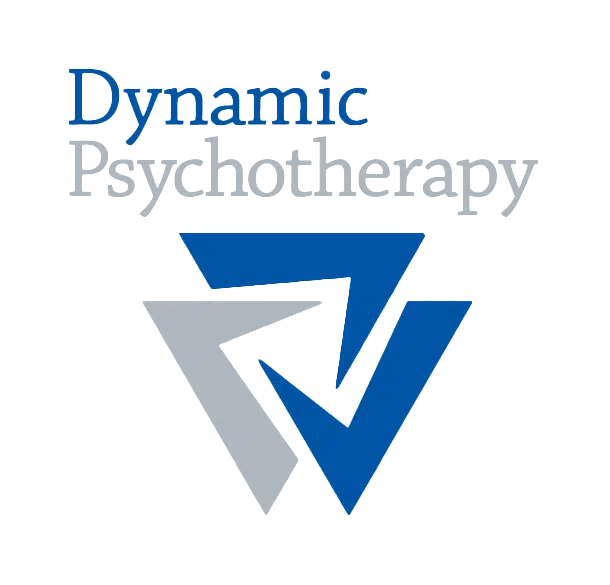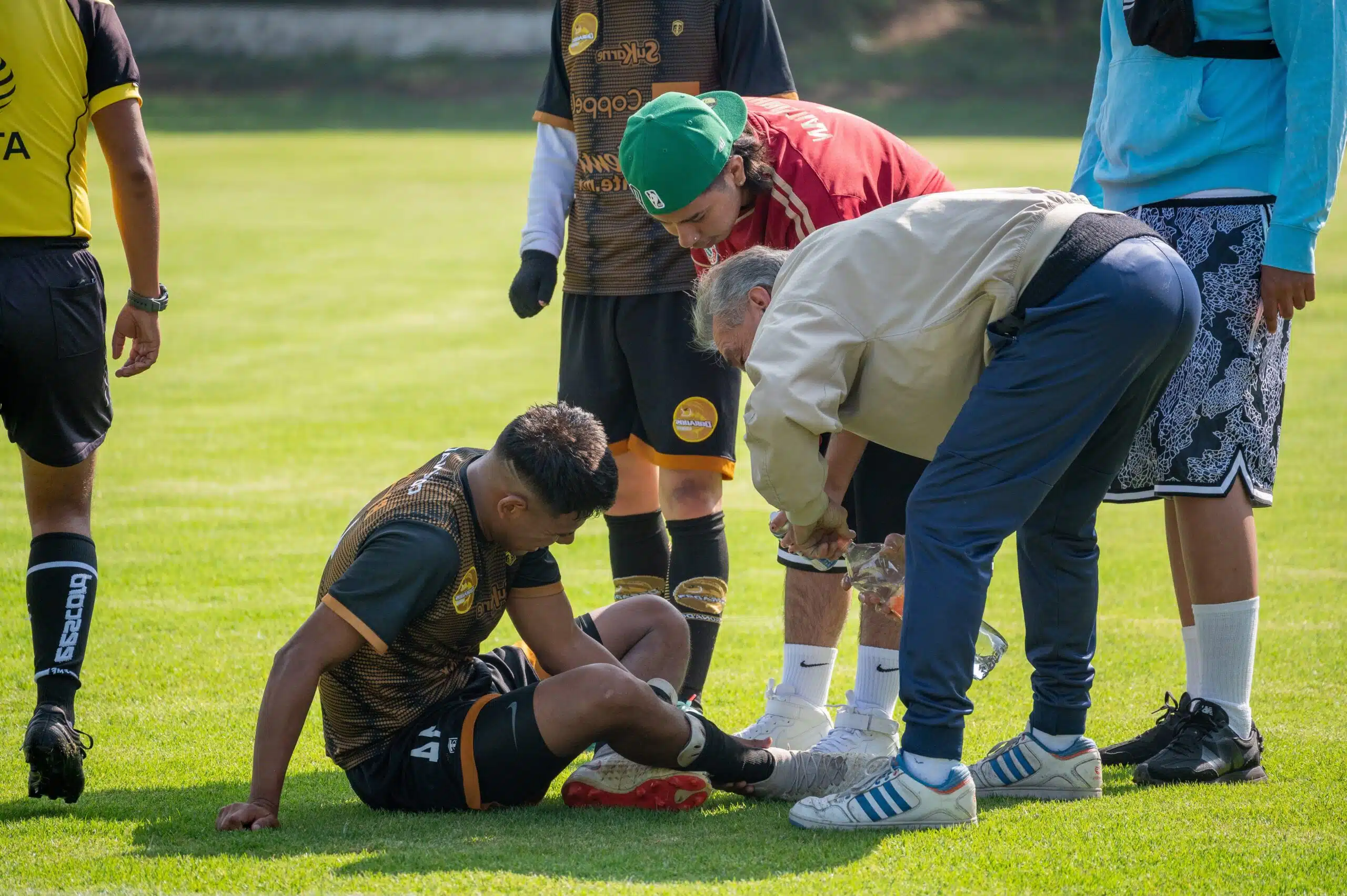Pop. A sickening noise echoes across the football field as I fall to the ground. Moments before, the full force of an opponent’s knee rattled into the side of my own, my right foot caught in the grass underneath. I’m tackled to the ground with aggressive momentum and body weight, and the football spills from my hands as I clutch my leg. Screams of distress ring around me. It takes me a few seconds to recognise that the screams belong to me.
I grasp handfuls of grass and pull the blades from the ground, as if that will alleviate the searing pain overwhelming me. “This is it. I’ve done my ACL,” I think helplessly, as a flurry of mental images of what the next 12 months of rehabilitation will look like engulf my imagination.
Time passes with rapid intensity as my brain tries to reconnect the external environment to the chaos of my internal experience. Peering up, I see club trainers running toward me with a stretcher. And then the pain in my right knee abruptly stops. Rolled onto the stretcher, I watch as the bright blue sky turns to the rust of the tin shed of my club’s country football change rooms. “I won’t play Aussie Rules Football again”, I think, as I continue to conjure up every dire bit of information I know about ACL injuries.
As I lay on the stretcher, the imminent catastrophe of my new injury began to seep out, beyond my ability to play sport, spreading to my work, leisure, relationships, and every other engagement I could contemplate. This injury had the potential to derail my sense of self across every domain of my life.
And while it has been incredibly inconvenient, at times depressing and debilitating, I have been able to progress in recovery non-operatively from a complete rupture of the anterior crucial ligament in my right knee (with a few other tears, strains, and sprains).
Working closely with a physiotherapist I trust for rehab has been a big part of my journey. I’ve realised how important the connection between my body and mind is. It’s not merely about healing the injury; it’s about addressing the mental hurdles that come up along the way. The fear of re-injury, the emotional toll of being sidelined, and the internalised pressures that are experienced by recreational through to elite athletes, can all impede physical healing and a return to peak performance.
Consequences Of Injury And Motivation To Return
For professional athletes, injuries can mean a loss of earnings, contracts, and potentially their future in the sport. There’s a risk of relapse or further injury if an athlete returns to sport too soon. However, a delayed return can also be costly in terms of keeping up fitness, and place in and impact on the team; it can also add to the emotional toll associated with lengthier recoveries (Jacob & Jose, 2021) For recreational athletes, injuries can result in a loss of regular physical and social activities, which can impact general health and well-being (Jacob & Jose, 2021).
Re-injury Anxiety
Re-injury anxiety is the concern that physical movement might cause further injury or pain; you may perceive your body as weak in a way that you didn’t experience it before the injury. Re-injury anxiety is common among athletes after injuries, especially after an ACL injury (Jacob & Jose, 2021). It’s an anxiety that leads to both psychological and physiological effects.
Re-injury anxiety is not just an immediate response to an injury, but can become deeply rooted in the athlete’s unconscious mind. The fear of re-engaging in physical activities can lead to further injury or pain and over-protection of the injured area. The perceived risk is out of proportion to the statistical likelihood of re-injury. These kinds of reactions are particularly common after incidents such as an ACL injury.
Other effects of re-injury anxiety include reduced attention and concentration, increased distractibility, lowered self-confidence, and increased pain perception. There are also physiological aspects to heightened anxiety, including elevated heart rate, irregular breathing, and muscle tension. These reactions can severely get in the way of recovery and the return to training, potentially leading to a decline in physical condition and an increase in pain, which then perpetuates the cycle of anxiety. It’s easy to see how these reactions can impact on performance once the player is back in the game.
Considering Unconscious Precursors
Injuries often incur extreme costs to the athlete, their team, and close others. As such, it can be difficult to comprehend there would be motivation to be injured. While a conscious wish to be injured is uncommon, Dr Tom Ferraro, a psychoanalyst, sport psychologist, and author, suggests that there can be unconscious factors that precede a sports injury. In his book Unpacking Depth Sport Psychology: Case Studies in the Unconscious, he outlines 5 primary precursors:
- Distraction from Off-the-Field Stressors: An athlete dealing with personal issues such as family conflict or financial stress might find their concentration compromised during practice or competition. This lack of focus can lead to a misstep or miscalculation resulting in injury.
- Anger that Has Not Been Expressed: When an athlete harbors unexpressed anger, it can manifest in their play style as aggressiveness or recklessness. They might push themselves too hard or take unnecessary risks, increasing the likelihood of injury or sanctions.
- Compulsive Workaholism Leading to Exhaustion and Injury: An athlete who trains excessively without adequate rest and self-care is at risk of overuse injuries. For example, a runner increasing mileage too quickly without rest days might develop stress fractures or tendonitis.
- Injury as Secondary Gain: An athlete overwhelmed by the pressure of competition might subconsciously welcome an injury for the respite it provides. For instance, a tennis player experiencing burnout may find that a sprained ankle gives them an ‘acceptable’ break from training and the limelight.
- Injury as a Form of Guilt or Self-Punishment: An athlete feeling guilty for underperforming or letting their team down might unconsciously injure themselves as a form of self-punishment. A soccer player who missed a crucial penalty could play more hazardously in the following games, potentially leading to injury.
The Role of Psychotherapy
Psychotherapy, particularly methods like Intensive Short-Term Dynamic Psychotherapy (ISTDP), plays a crucial role in navigating this terrain. ISTDP helps athletes explore and understand the unconscious psychological aspects of their injuries, including why the fear of getting hurt again can be so intense, and how their mind might react to the stressor of being injured.
In the case of my ruptured ACL, through ISTDP, I confronted the emotions and unconscious processes that were as much a barrier to my return as the injury itself. This form of therapy guided me through the emotional blocks and conflicts, helping me to mentally prepare for the challenges of returning to play.
In essence, psychotherapy can be a vital part of healing from a sports injury. It’s about strengthening the mind just as we rehabilitate the body, ensuring a return not just to physical activity, but to a state of confidence and resilience that defines ourselves beyond just what we do; becoming assured of who we are.

